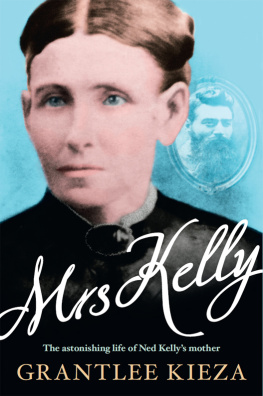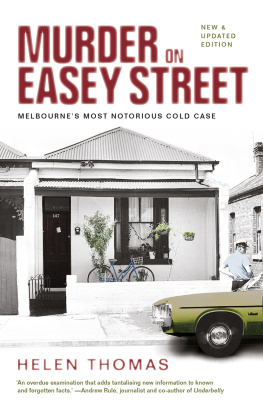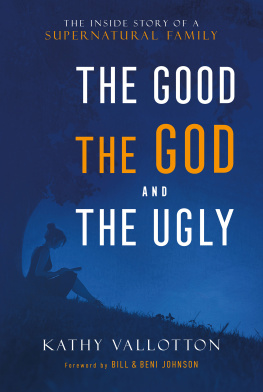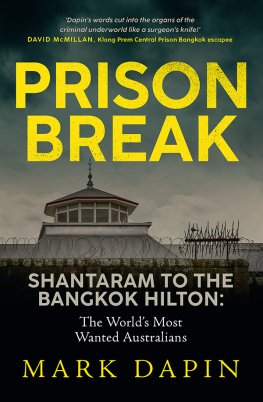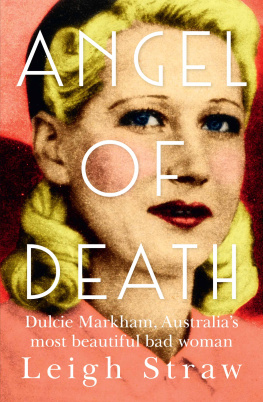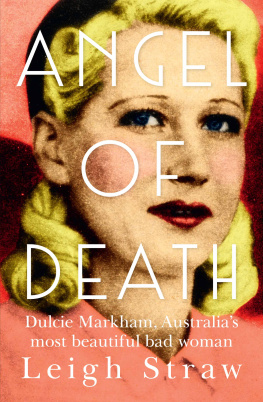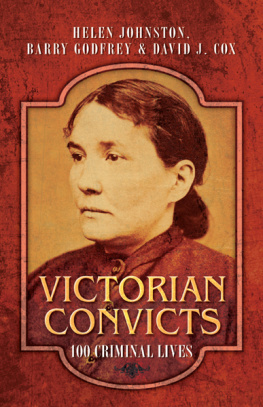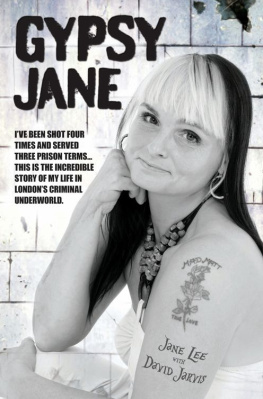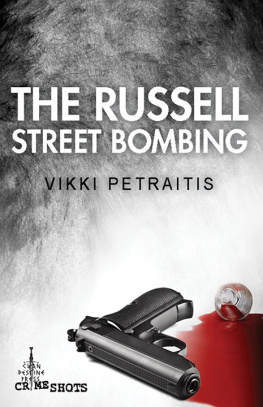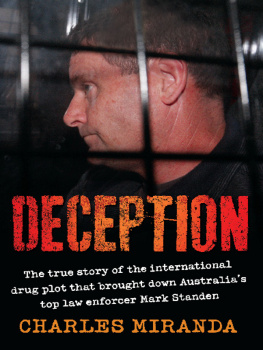Contents
In loving memory of my wife, Ann
Prologue
T he year 1988 was particularly significant in the annals of crime and its detection in Victoria. In October, two young police officers were executed in a cold-blooded outrage that changed forever the relationship between Victoria Police and the Melbourne underworld. Two of the four men charged with, and acquitted of, the murders of Constables Steven Tynan, 22, and Damian Eyre, 20, were Victor Peirce and Trevor Pettingill, sons of crime matriarch Kathy Pettingill.
Six months earlier, in April 1988, Kathy Pettingill had fled the killing fields of suburban Richmond for the remote, ocean-side hamlet of Venus Bay. The impetus for her flight was the horror of what went on in the charnel house where another son, serial killer Dennis Allen, tortured and murdered his victims, while presiding over a $70,000 a week drug empire.
In 1996, the first edition of The Matriarch, Kathys authorised biography, was published. At the launch, she told the gathered media she would have killed Dennis herself had he not died as a result of his massive amphetamines habit.
Since the books publication, Kathys story has rarely slipped from public view. Several filmmakers attempted, and failed, to convert her story to celluloid. Eventually one succeeded. Animal Kingdom went around the world, garnering awards and impressive box office receipts. So much so that a televised spin-off was launched in America, and is currently in its fourth season. But Kathy hated it. After seeing the original film in Melbourne soon after its release, she vented her disgust at Jacki Weaver, nominated for an Oscar for her performance as Smurf, whose character was based on Kathy.
Jacki Weaver and I have only one thing in common, she told the Melbourne Sunday Herald Sun. Neither of us can act. The reason for her loathing of Weavers performance? She kept kissing her sons on the mouth. I never did that.
Meanwhile several magazine articles and TV true crime series featured Kathy and her family, including a Netflix version, which saw a British production crew spend weeks between her home in Venus Bay and the back streets of Richmond. A scholarly, two-part treatise on The Matriarch, written by author Guy Savage, appeared online shortly after the release of Animal Kingdom. If Zola were alive, wrote Savage, he would be fascinated by Kathy Pettingills story, and the issues of hereditary. Hed be on the first plane to Australia collecting material for his next series of novels.
Twenty-two years after the first publication of The Matriarch, this new edition demonstrates Kathy Pettingill and her chilling story are not going to go away any time soon.
Adrian Tame
Introduction
K athy Pettingill is at the wheel of her old brown Falcon, her head of grey, curly hair barely visible, as she heads down the main street of Venus Bay. She and her car are a familiar sight in this tiny holiday resort on the remote southeast coast of Victoria. Shes on her way to pick up the mail, and the paper, or maybe to check the refuse tip for treasures like the fridge or settee she salvaged there last year. If its a Wednesday shell be heading further afield another thirty kilometres into Inverloch for her beloved bingo. Its been eight years since she moved down here and, with a few exceptions, the locals have stopped referring to her as that wicked woman. Their conversations no longer come to an abrupt halt when she walks into the local store; one or two have even been inside her modest, spotlessly clean cottage hidden behind the dunes, and sampled her famous boiled fruit cake.
Kathys sixty now, and her memories of murder, heroin dealing, prostitution, torture and betrayal are just that... memories. Before age fades them for ever and they drift out to sea with the mists that sometimes swirl over the village, she needs to marshall them together one last time: line up the ghosts and exorcise them once and for all.
Because thats what this is all aboutthe re-examination of a life that has juxtaposed unspeakable brutality with deep loyalties, that reveals occasional glimpses of a nature so callous that there should be no place for the irrepressible humour, warmth and sheer resilience of the other Kathy Pettingill. Let there be no mistakehere is evidence of all the depravity that earned her the nickname Granny Evil, but equally of an uncrushable spirit which instinctively leaps to the defence of the weak and oppressed.
The public perception of Kathy Pettingill, gleaned from decades of newspaper headlines, courtroom battles and vindictive gossip, sees her as the matriarch of a family steeped in vicious and often lucrative crime. Local legend has it that when she bought her cottage at Venus Bay she opened the boot of her car and thrust the asking price in a bundle of crumpled notes into the arms of the towns real estate agent. The truth is she paid a $20 holding deposit.
So where do public perception and private reality diverge? What is it behind those eyes, one glass, the other fiercely alive, that has created the legend? In simplest terms there are two catalysts for the reputation Kathy and her web of relatives have earned as possibly the most infamous criminal family in Australian history. The first is her son Dennis Allen, and the second is the execution of two young police officers in a crime that has become known as the Walsh Street murders.
Dennis was Kathys first-born son and, depending on whose version is believed, he murdered between five and thirteen people. He also built a drug-dealing empire over a five-year period which earned him an estimated $70,000 a week; he was linked with names like New South Waless notorious rogue policeman Roger Rogerson; he tried to blow up a coroners court building where an inquest was being held into the death of one of his victims; he used a heavy calibre automatic rifle to try to shoot a police helicopter out of the sky when its night lights annoyed him; he flew the Jolly Roger outside his inner suburban home, and he once dismembered a Hells Angel with a chainsaw.
But these are not the only reasons a cult following has grown around Denniss memory since his bizarre death in 1987. The delicious shudders that mark the raising of his name in after-dinner discussion around the candle-lit dining tables of South Yarra and Toorak have more to do with the legends surrounding his black, sadistic humour. There is a story, possibly apocryphal, that halfway through chainsawing Anton Kennys legs from his body, Dennis wiped the bone and gristle from his brow and mimicked the words of a popular television commercial for the States favourite beer, Victoria Bitter... Matter of fact Ive got it now. What the ad, and Dennis, referred to was a raging thirst earned by pulling a plough. Certainly its true that Dennis broke off from his work with the chainsaw to quench his thirst with a couple of beers before finishing the job.
In an age where Hannibal Lecter and his serial killing peers have replaced James Bond and similarly wholesome figures in our celluloid fantasies, a fascinationsome would say an unhealthy obsessionhas evolved around the subject of evil. Dennis has his place somewhere in this obsession, but evil, like all things, is a question of degree.
Most of us would agree that the ultimate evil of our time was the system of death camps created by Hitlers Nazi Germany. It has been said that when the Allies finally extinguished the ovens and ended the slaughter at Auschwitz, they found the birds had stopped singing and the grass wouldnt grow. The evil wouldnt go away. Well, the birds sing and the grass grows profusely on the vacant lots in the back streets of Richmond where Dennis committed his murders and sold his heroin. So how much further down the scale of evil does he take his place?
Certainly somewhere well below those monsters of twentieth century mass murder like John Reginald Halliday Christie, or the Yorkshire Ripper, Peter Sutcliffe. Each of us probably has a different idea of men like Christie and Sutcliffe. Brett Whiteley, for instance, captured the evil of Christie in a series of unforgettable canvases. But I gained an insight into the psychology of the mass murderer when I was still quite young, from Ludovic Kennedys book on Christie, Ten Rillington Place.


